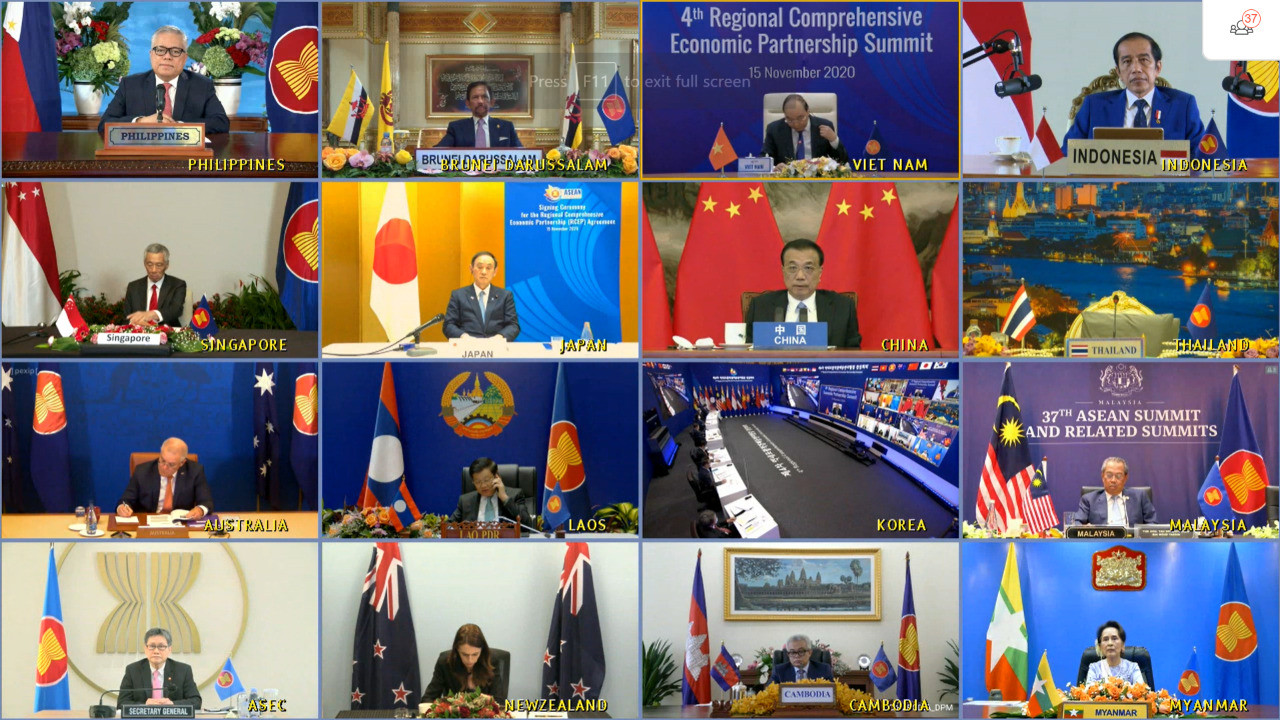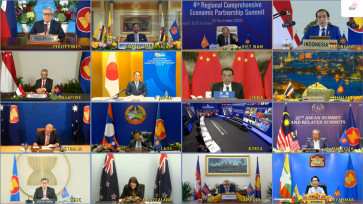Popular Reads
Top Results
Can't find what you're looking for?
View all search resultsPopular Reads
Top Results
Can't find what you're looking for?
View all search resultsIndonesia banks on RCEP for reduced uncertainty in global trade
The RCEP, which represents nearly one-third of the global economy, is expected to grow the Indonesian economy by 0.05 percent between 2021 and 2032, according to an estimate from the Finance Ministry’s Fiscal Policy Agency.
Change text size
Gift Premium Articles
to Anyone
T
he Indonesian government is expecting the newly signed Regional Comprehensive Economic Partnership (RCEP) to help overcome uncertainty in global trade and prop up recovery from the pandemic-induced downturn.
Ten country members of the Association of Southeast Asian Nations, as well as Australia, China, Japan, South Korea and New Zealand, signed on Sunday the agreement during the fourth RCEP Summit, held online on the sidelines of the ASEAN Summit — around eight years after negotiations were first launched.
The deal aims to progressively lower tariffs across various areas in the coming years.
“This signing signals that our commitment to multilateralism remains strong,” President Joko “Jokowi” Widodo said in a statement on Sunday.
The RCEP, which represents nearly one-third of the global economy, is expected to grow the Indonesian economy by 0.05 percent between 2021 and 2032, according to an estimate from the Finance Ministry’s Fiscal Policy Agency.
Last year, the participating countries collectively accounted for 61.6 percent of Indonesia’s overall exports and 71.3 percent of overall imports, according to the Trade Ministry.
Read also: What is the RCEP trade deal?


















